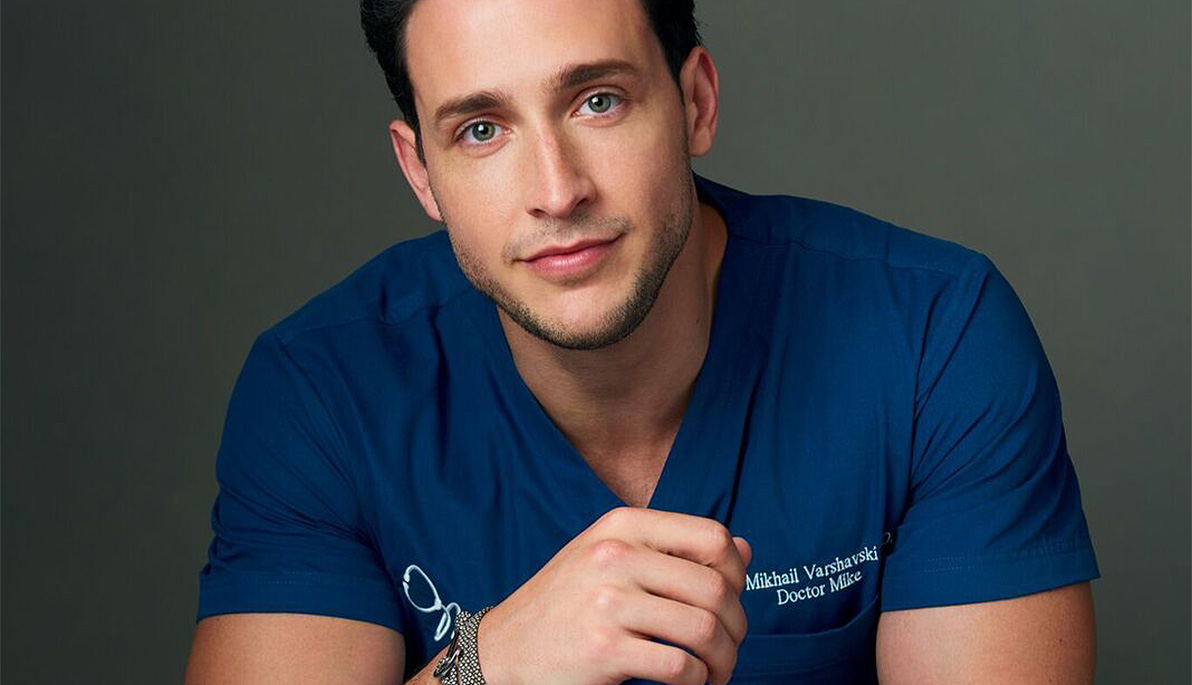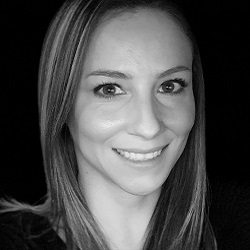News
Doctor Mike Talks to NYITCOM Students About Social Media’s Role in Medicine
April 15, 2021
NYIT College of Osteopathic Medicine (NYITCOM) students were recently treated to a virtual visit from a very special alumnus and Internet celebrity: Doctor Mike.
On April 13, NYITCOM graduate Mikhail Varshavski (D.O. ’14), commonly known as Doctor Mike, was the latest speaker featured as part of the medical school’s Virtual Alumni Spotlight series, hosted by NYITCOM Alumni Relations. With more than 16 million social media followers, he provided a fitting discussion on the role of social media in medicine.
The event was moderated by Associate Professor of Family Medicine and Director of the Center for Ehlers-Danlos Syndrome Bernadette Riley, D.O., and fourth-year medical student Moshe Bressler, who have both completed their own research on physicians and social media.
Doctor Mike is a multifaceted board-certified family medicine physician, media personality, educator, writer, and philanthropist, who began his ascent to Internet stardom shortly after graduating from NYITCOM in 2014. During that time, he documented his residency journey and shared his medical learnings with online followers, garnering 651+ million views within a few years. Today, his social media presence is one of the largest in health education and includes a popular YouTube channel that features medically themed entertainment.
Leveraging his media presence and impact in the medical community, Doctor Mike frequently covers the importance of health literacy while simultaneously battling misinformation in a practical yet entertaining approach. He has lent his expertise to mainstream news channels such as CNN, ABC and Fox News, and has appeared in interviews alongside some of the nation’s most notable health professionals, including Anthony Fauci, M.D., director of the U.S. National Institute of Allergy and Infectious Diseases, and head of Google Health, David Feinberg, M.D.
In addition to his charity, “The Limitless Tomorrow Foundation,” which he launched in 2015 to financially support students in need, Doctor Mike serves as an ambassador for the United Nations’ “Verified” initiative, which aims to flood the Internet with facts amid the COVID-19 crisis. During the pandemic, he also donated $50,000 in masks to his local hospital and raised more than $65,000 for the CDC Foundation.
The Box sat down with Doctor Mike ahead of his visit with NYITCOM students to discover what social media advice he has to share with today’s medical students and physicians.
Speaking from your own experience, how have you found that physicians are held to a higher standard on social media?
Unlike traditional social media talent, physicians are rightfully held to a higher standard based on the fact that their voice carries the added weight of “expert opinion.” We are an authoritative source that should be treated with proper care. To quote Spiderman, “with great power comes great responsibility.”
Why do you think this higher standard exists?
People trust their doctors and expect that someone with that level of credibility ought to be telling the truth and not spreading misinformation. In order to be an effective physician, you need to have the trust of your patients. By holding ourselves to this higher standard, we can strive to improve the reach of our messaging and effectively strengthen the doctor-patient relationship.
In your opinion, what social media “rules” must physicians follow?
- Human first, doctor second
- Never give individualized advice through social media
- Everything posted online should be considered permanent
- Medical ethics should always be put first (over profit)
- Strive to lead with empathy
- Know the limits of your knowledge and don’t be afraid to say “I don’t know”
Are these rules the same for medical students, why or why not?
Yes, but with even a higher level of humility. Extensively studying a chapter on anemia might make you feel like an expert, but that’s not based on reality.
You've built a very successful social media presence that inspires others to make healthy lifestyle choices. Tell us about your experience and what led you to do this.
I realized early on in my residency training that I was having similar, if not identical, conversations with patients on each visit. I was educating my patients to empower them to gain control of their health. I quickly realized that if I could leverage the power of social media (with over three billion users) to have this conversation on a mass scale, I could make a huge impact on public health.
What advice would you give to other physicians and/or med students also looking to use their platforms to inspire others?
First of all, using social media as a healthcare provider is not for everyone. We are all different in our skillsets and passions, bringing unique value to our respective fields. If you are set on using social media to amplify your health messaging, be prepared to experiment. Experiment with formats to know not only what you are good at but also what the audience enjoys seeing from you. You cannot jam content onto an audience that is not relating to it.
What do you enjoy most about returning to your alma mater and speaking with today’s medical students?
Being able to pass down the lessons I’ve learned on this unique journey of mine. Social media is here to stay, and there is a way to leverage its reach to help improve healthcare. I hope with today’s conversation, we can move away from villainizing social media and instead focus on what we can accomplish with it, if we use it responsibly.


_Thumb.jpg)


